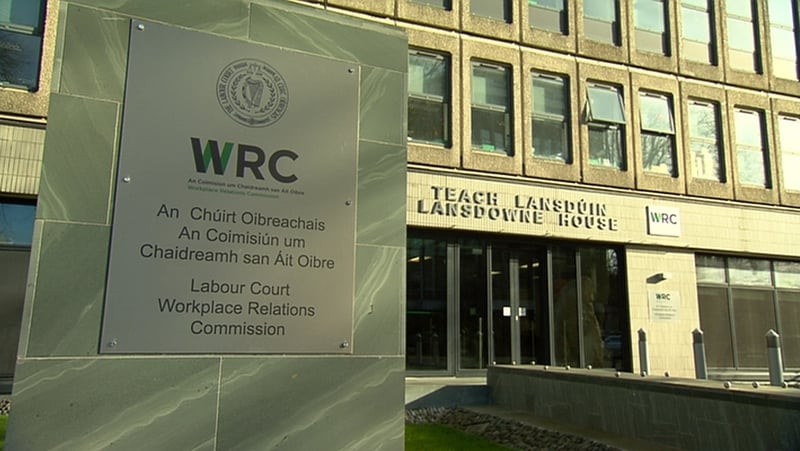A labourer sacked by a civil engineering firm for taking part in an unofficial "wildcat strike" over pay has secured awards totalling €7,600 on foot of a finding of unfair dismissal.
Worker Noel Gamble was one of four colleagues who downed tools at Patrick McCaffrey & Sons Ltd, trading as McCaffrey Contractors, and did not report to work on Monday 20 January 2020, the Workplace Relations Commission was told.
A company disciplinary process concluded that the absenteeism was gross misconduct and a sacking offence, which Mr Gamble challenged in an internal appeal and then in statutory complaints to the WRC.
Giving evidence to the tribunal, Mr Gamble told the tribunal that the men had taken a pay cut from €12.20 an hour to €11.60 an hour when the construction crash hit in 2008.
Annual pay increases were "typically" agreed each January but there was no change in 2020, with his pay remaining at the €12.18 set the year before - less than he had been on in 2008, Mr Gamble pointed out.
He said the team were "all very unhappy with the pay" and on Wednesday January 15 that year told their foreman, Noel Kerrigan, that they would not show for work on the following Monday unless "someone from management came to talk" about pay.
Mr Kerrigan told them on the Friday, January 17, that there had been no response from the company's bosses and "advised" the four workers not to come back until they did, Mr Gamble said.
The company’s contracts manager, Hugh Morrow, said in evidence that he chose not to address the matter because he expected the workers to appear on the Monday.
"I wasn’t sure if it was banter or a real threat," he said.
Mr Kerrigan denied to both the company investigators and the WRC that he told the workers to stay away.
Ibec rep Declan Thomas, appearing for the company, said: "Their conduct was extreme. It is simply not permissible to threaten an employer in order to obtain a pay rise."
He said it was "reasonable" to consider their actions gross misconduct.
Mr Gamble’s solicitor, Terry Gorry, said the evidence considered in the company’s internal disciplinary and appeals process was "weighted against the complainant".
In her decision on the case, adjudicator Emile Daly said the parties to the case had "avoided use of the word 'strike', but said what Mr Gamble and his colleagues had done was "akin to a one-day work stoppage" or "wildcat strike".
She said there was "no right to strike under Irish law", but there there was protection from penalisation for a trade union member taking "lawful and authorised industrial action".
Ms Daly said the actions of Mr Gamble were"wrong" and accepted Mr Kerrigan’s denial that he "encouraged" the action as credible.
However, she said that while Mr Gamble’s involvement "came very close to gross misconduct", the company’s actions also had to be considered.
"Given that the respondent was put on notice of this proposed action, I consider that it was not reasonable for them to be silent, wait and then punish," Ms Daly wrote.
She said the one-day work stoppage could reasonably have been considered misconduct, but that a gross misconduct finding went too far.
Ruling that Mr Gamble had contributed 50% to his dismissal, Ms Daly awarded him €3,579.45 under the Unfair Dismissals Act 1977 for his financial loss from dismissal and a further €4,090.80 for eight weeks’ notice pay due to him under the Minimum Notice & Terms of Employment Act, 1973.
It is understood Mr Gamble was the only one of the four workers who went on strike to challenge their dismissals before the WRC.
